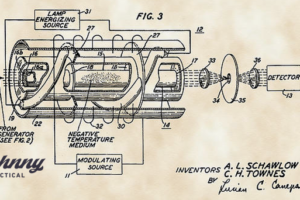Yes, I’m jumping on the New Year’s band wagon, and I’m taking you with me.
What do Alexander the Great, William Shakespeare, Leonardo da Vinci, Sir Francis Drake, Benjamin Franklin, Marie Curie, Agatha Christie, Florence Nightingale, Albert Einstein, George Washington Carver, Amelia Earhart, Nelson Mandela, Elon Musk, and you all have in common?
Think…
It’s possible that you might have other things in common with them as well, but the one thing that is certain is that you, me, and each one of them all get 24 hours to use each day. Not a minute more, not a minute less.
How To Spend $86,400.00
Here’s a couple more questions to get your wheels turning. If you had a bank account that automatically reset to a balance of $86,400.00 at the stroke of midnight every day — with none of it carrying over to the next day — would you spend it all every day? How would you spend it? Remember, the rule is you can’t save any of it for later.
Knowing that there is that much money to be spent by midnight is kind of stressful, because if you’re like me, you would want to get the most out of it. After all, squandering that kind of money would be stupid. The parallel here is that there is 86,400 seconds in a 24 hour day. We often talk about spending time, but we don’t really think about what that actually means until we give it value by turning those seconds into dollars. When we realize how much money we are leaving on the table that can be a game-changer.
From Point A To Point B
Before you can get from one point on a map to another you have to know where you are. If you don’t know where you are starting from then you can’t possibly know what route to take to get to your destination. So before you start making New Year’s resolutions, take some time to evaluate where you are so that you can get to where you want to go.
There are two places you can look to find out where you have been this year and how you got to where you are: your calendar and your bank account. Your calendar will tell you how you spent your time and your bank account will tell you how you spent your money. Your calendar and your bank account will tell you what was actually important to you, regardless of what you might say or think. Ouch. That might hurt a little, but that is the cold reality.
That initial sting might set off either a sense of disbelief or a series of excuses, or both. If it does, don’t throw up your hands and stop there. Let the sting fuel your fire to take back your time, your priorities, and your life, so that this time next year you’ll look back with pride on all that you accomplished. Here’s how:
Watch Your Language
First, listen to the words you use when you look back at the past year and see all the things that you wanted to do, but didn’t. If you find yourself saying things like, I didn’t have the time, I didn’t get the chance, or I was too busy, then you are human. But understand that that kind of language is passive and means that you are allowing things to happen to you, you are not happening to them.
Your language is the first thing that you ought to change; change your language, change your paradigm. Start taking ownership of missed opportunities or wasted time by instead saying to yourself, I didn’t make the time, or, I chose to do that other thing instead. Once you begin to admit to yourself that you put watching a Netflix series ahead of writing that book or doom-scrolling on social media was more important than starting your side-hustle then you will take ownership of your choices and start putting first things first.
Making Time
There are essentially three things you can do to create more time. You can eliminate, automate, or delegate time-sucking tasks and responsibilities to give you margin on your calendar. It won’t just make more time in the sense that you are trading one minute for another, or trading inefficiency for productivity, but you can actually compound time with a 10x or 100x return on your investment.
Eliminate
First, eliminate. Mercilessly eliminate everything on your calendar that you possibly can along with “fillers” that aren’t. Watching TV, YouTube, and scrolling on social media alone can buy you countless hours of free time to do the things that you said were important to you. I’m not saying never to relax or to suddenly identify as Amish, but it’s hard to justify hours upon hours of mindless entertainment per day while simultaneously watching your dreams slip through your fingers like sand in an hourglass.
Oftentimes we can allow things to creep onto our schedule that derail the plans and good intentions we had at the beginning of our day or week. Relatives dropping by unexpectedly, invitations to coffee, emails in our inbox, unscheduled meetings, or someone else’s lack of planning can suddenly become our emergency and cost us time — time we can’t afford to spend. Guarding your priorities means saying, No… a lot.
According to English grammar experts who put their pants on one leg at a time, “No” is a complete sentence. The truth is that when you say no to one thing you are actually saying yes to something else. Stephen Covey said, “You have to decide what your highest priorities are and have the courage pleasantly, smilingly, and non-apologetically to say “no” to other things. And the way to do that is by having a bigger yes burning inside.” Saying no doesn’t mean that it’s forever, either. It could be that you need to say no to some good things for a season so that you can have the time for the things that are better.
Automate
What you cannot eliminate, automate. Now, more than ever, there are all kinds of tools available for you to automate routine, recurring tasks. Simply putting your mortgage, utility bills, cell phone, and the like on auto-payment will save you time every month — time better spent on more important things. You can automate everything from watering your lawn, adjusting your thermostat, to sending emails, investing money, and having diapers or dog food delivered to your door.
Automating mindless tasks will free up emotional and intellectual bandwidth that you can use for generating ideas and solving problems. Ten minutes here and fifteen minutes there adds up to scores of hours per year.
Delegate
What you cannot eliminate or automate, delegate. Delegation can be scary because you might feel like others won’t get it done like you do or as well as you do. The truth is that delegation has a high up-front cost of teaching and training, but can have the biggest impact on the compounding effect of time savings. Delegating basic tasks to others can initially be frustrating and cause you to give up. You might think you told them once, so what’s the problem? Why don’t they get it? But delegation should be a gradual process of handing off a responsibility to someone else that requires you to walk beside them for a while until they can run on their own.
One simple example is mowing the lawn. If you’re like me you are pretty particular and have your own method down to a science. In your mind, it’s easy. So, you tell your son, “Go mow the lawn,” but never show him how or give him all the tools to do it. He grudgingly goes out there, does a crappy job, you get annoyed, and so you abandon ship and go back to doing it yourself. Wrong. If your lawn takes an hour to mow and you spend four hours teaching your son how to do it by showing him what a properly mowed lawn looks like, you still come out way ahead. One hour a week for four weeks is a four-hour investment. Your son then mows the lawn to your standards from then on, saving you 20 hours a year, or more, which is well worth the four hours spent.
The time you save for every task that you eliminate, automate, or delegate will compound because you are not only NOT doing those things anymore, but you are then free to do the other things that only you can do — the things that bring you joy, make you money, grow you as a person, or propel you toward your goals.
Be Fully Present
I think multi-tasking is kind of a myth. When you do more than one thing at one time you don’t do any of them well. If you want excellence then you need focus. Being fully present means that you are maximizing your time by getting the most out of whatever it is that you are engaged in. It’s quality over quantity.
When you are with your spouse, be engaged with your spouse. When you are reading to your kids, turn the TV off and be part of the story. When you are at work, focus on your work and do your best. Don’t be at your kids’ soccer game and answering emails or out to dinner with your spouse and texting a friend. Despite what you think you are short-changing everyone involved, including yourself. I’ve done it, still do it, and in fact being fully present is one of my biggest personal challenges.
Time And Tide
If you have a paradigm shift by changing your language, see the compounding effect of creating time by eliminating, automating, and delegating, and are fully present in whatever you do, then you will create margin in your life and be able to do the things you said you would.
Geoffrey Chaucer wrote, “Time and tide wait for no man.” If you don’t get started you’ll be left behind.
You have $86,400.00 to spend.
Ready.
Set.
Go.
__________________________
- Figure out where you are
- Do an audit of your time and your money
- Change your language and take ownership of your priorities
- Create time by eliminating, automating, and delegating tasks
- Be fully present in whatever you do
__________________________
Thanks for reading! Do you have a story that you think we could learn from and that you’d like to share with Johnny Tactical nation? Fill out the contact form and include your name, rank, and department, or email it to [email protected] and follow these guidelines:
– It must be a firsthand account
– True
– Have a lesson, principle, or tactic to apply
– Cleaned of names, dates, and places
– Include your call sign
If your story is selected and published in our blog you’ll get the credit using your call sign and we’ll send you a free Johnny Tactical morale patch.





Leave a Reply
Your email is safe with us.
You must be logged in to post a comment.